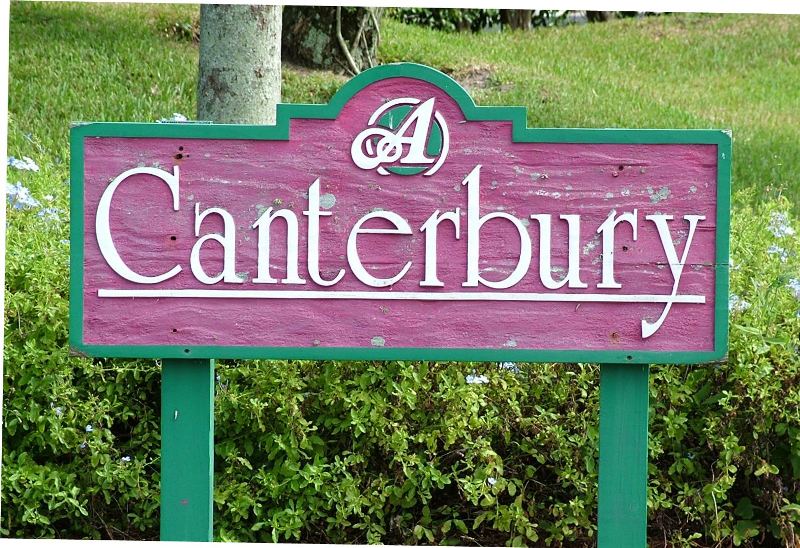Canterbury Communique
Greetings from the Canterbury Community! It’s already November, and we’re looking forward to what promises to be an eventful and exciting month. A new President will be elected on the Tuesday following the first Monday of November, and, hopefully, he/she will be the one of our choice. We’ll also honor all of our veterans on Veterans Day (Nov. 11), Daylight Saving Time will end Nov. 6, and we’ll celebrate Thanksgiving Day on the fourth Thursday of the month. For sure, it’s going to be a stimulating time of the year!
Our newly elected Canterbury Board of Directors continues to work on improvements to the community, and we thank them for their enthusiasm and dedication. We also want to recognize one of our residents, Lou Levy, who was the guest speaker at Book Club II’s October meeting. “Molokai’o” a book about leprosy, was the selection of the month. Lou, a retired officer in the U.S. Public Health Service, specialized in the treatment and control of leprosy for most of his career. A medical doctor with a Ph.D. in pharmacology, he did extensive research in the field. He ran a research laboratory in San Francisco, worked in collaboration with the World Health Organization, and, upon retiring to Israel, established a research laboratory at the Hadassah Medical Center in Jerusalem. When asked to tell us about the disease, he submitted the following narrative:
“Leprosy is a contagious disease caused by the bacterium, Mycobacterium leprae, a “cousin” of the organism that causes tuberculosis. The infection is transmitted from the patient to his uninfected contact via the respiratory route, much as in tuberculosis. The infectious patient broadcasts the organisms into the environment with every cough and sneeze; the contact becomes infected by inhaling the organisms. The great majority of people infected with M. leprae do not become clinically ill – i.e. they have an “inapparent” or “subclinical” infection, as is the case in infection with the tubercle bacillus. Only a small fraction of those with a positive patch test become ill with tuberculosis.
Leprosy has been controlled (i.e., transmission of M. leprae has been interrupted) in most of the world by the administration to the known patients of the antibiotic, rifampin, in combination with one or two other antimicrobial drugs. Each drug acts on the organism by a different biologic mechanism. The treatment, which is reasonably cheap and well-tolerated, and which is self-administered by mouth, is effective. Although deformities that have already resulted from the disease may not be reversed, the patient is rendered non-infectious by the first dose. And he may be considered “cured” after 6 months. Control may fail in third-world countries where access to the patients is often difficult.”
In closing, we want to thank Lou for sharing his expertise. We also want to wish everyone a Happy Thanksgiving holiday. The words of Oprah Winfrey seem very appropriate at this time. “Be thankful for what you have: you’ll end up having more. If you concentrate on what you don’t have, you will never, ever have enough.”



